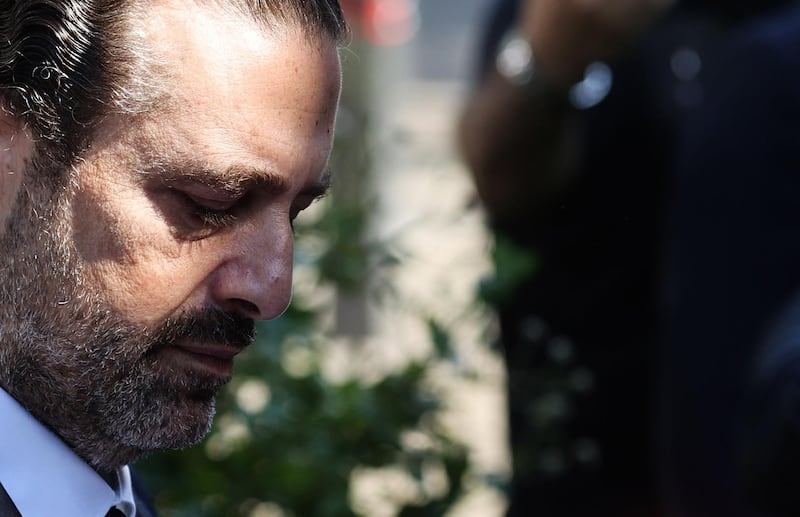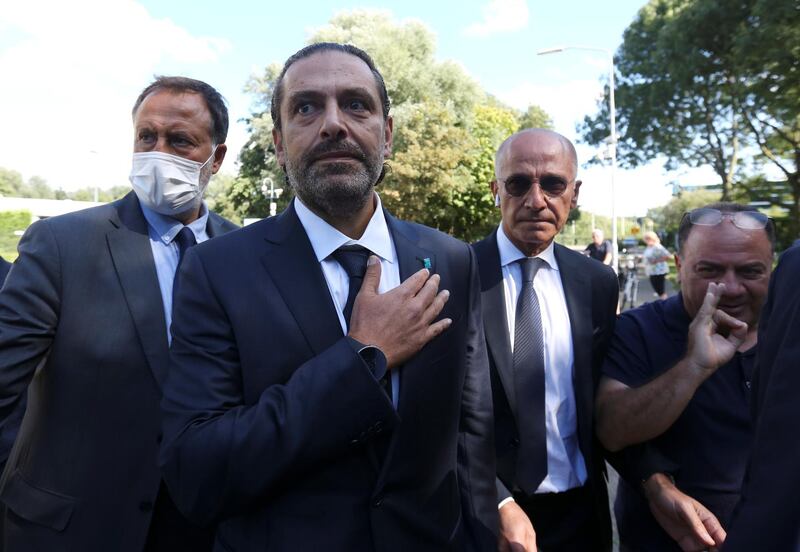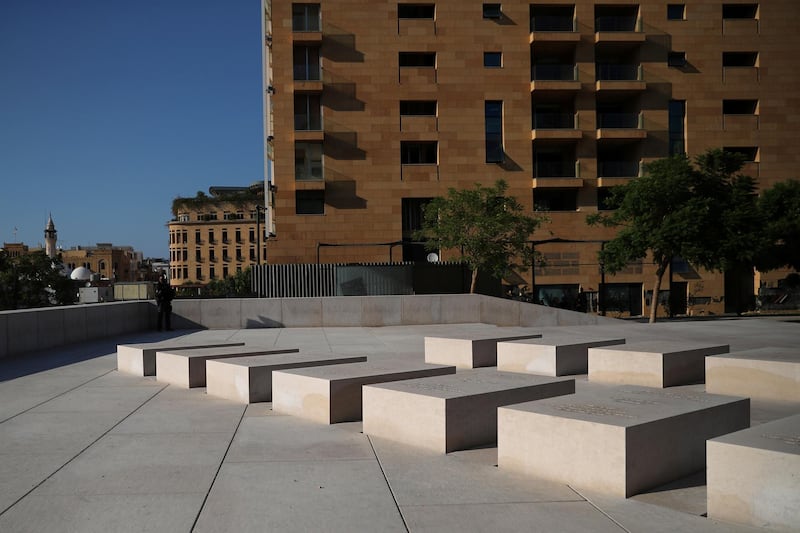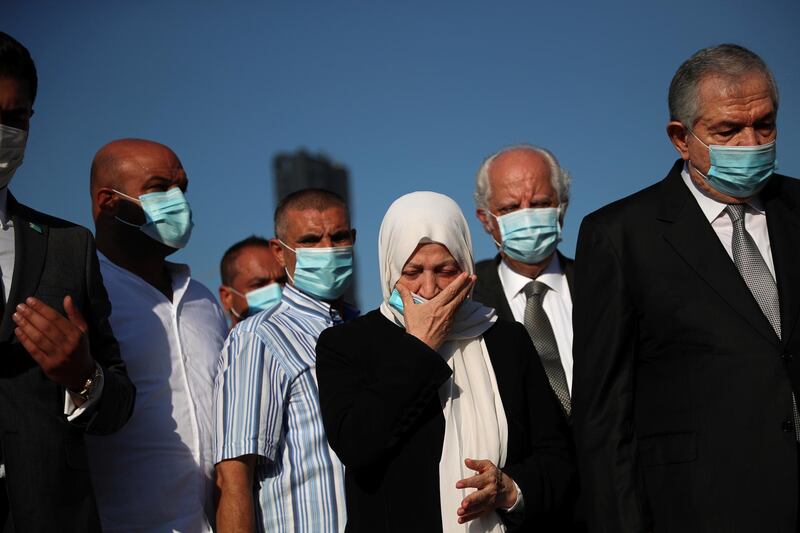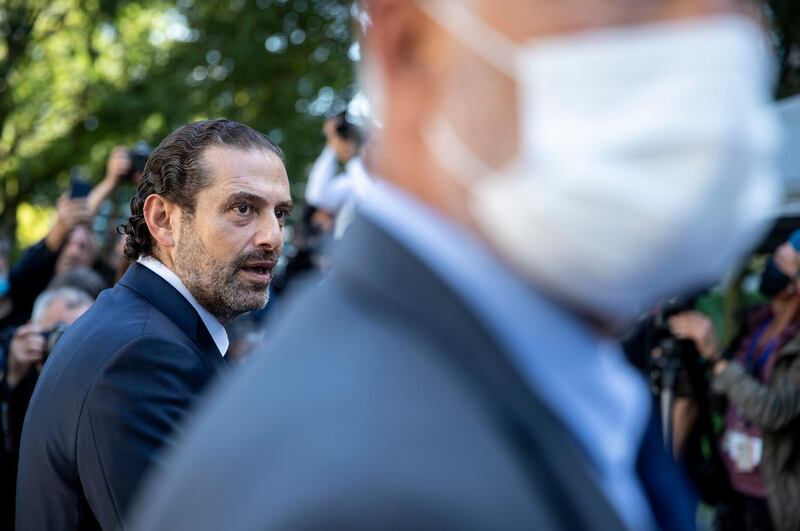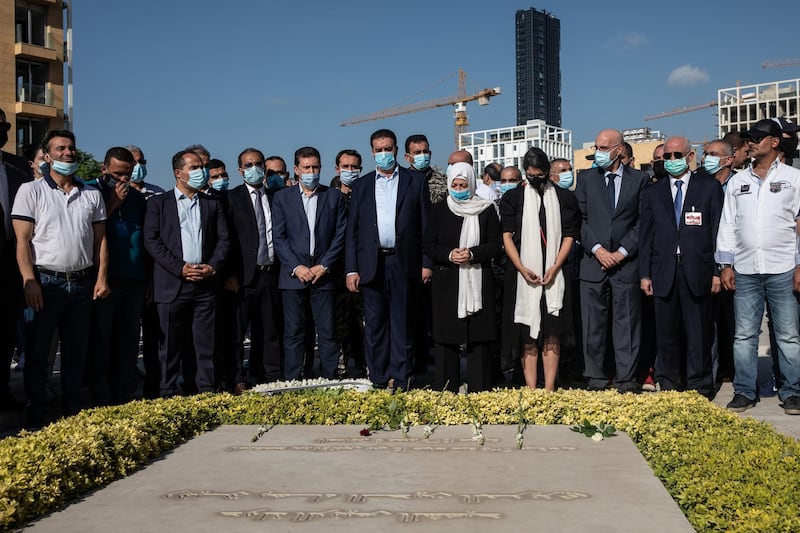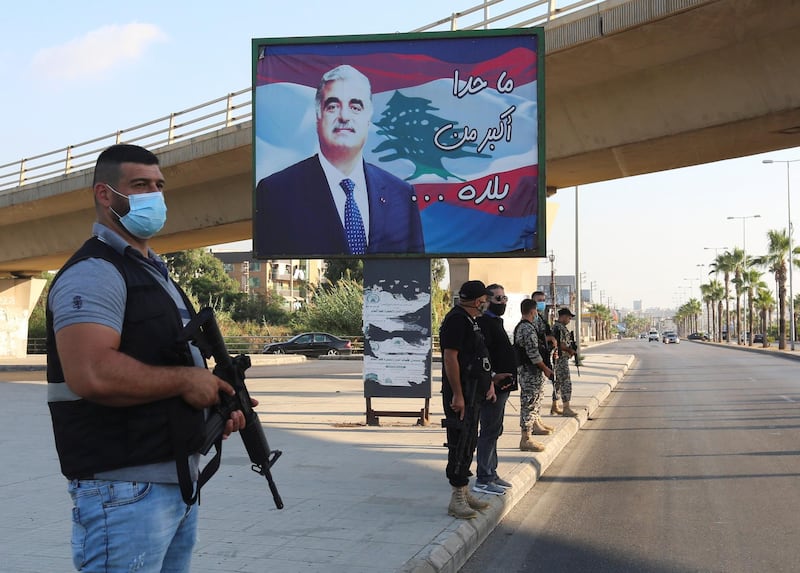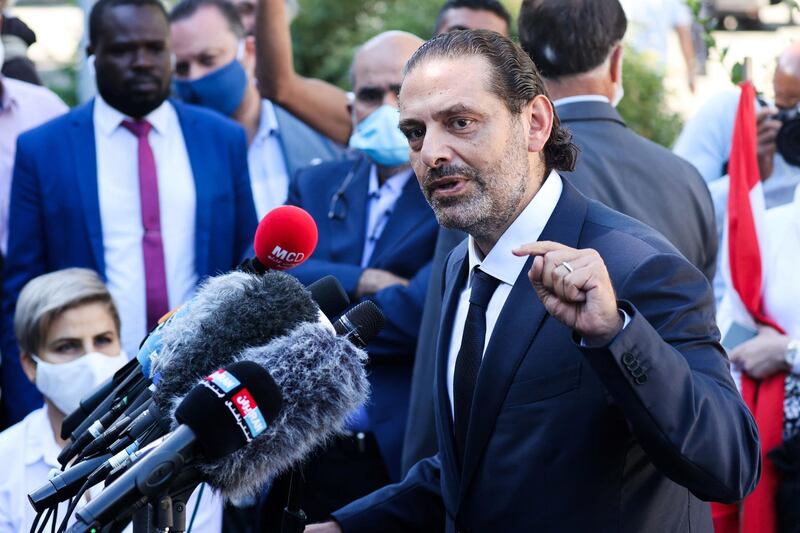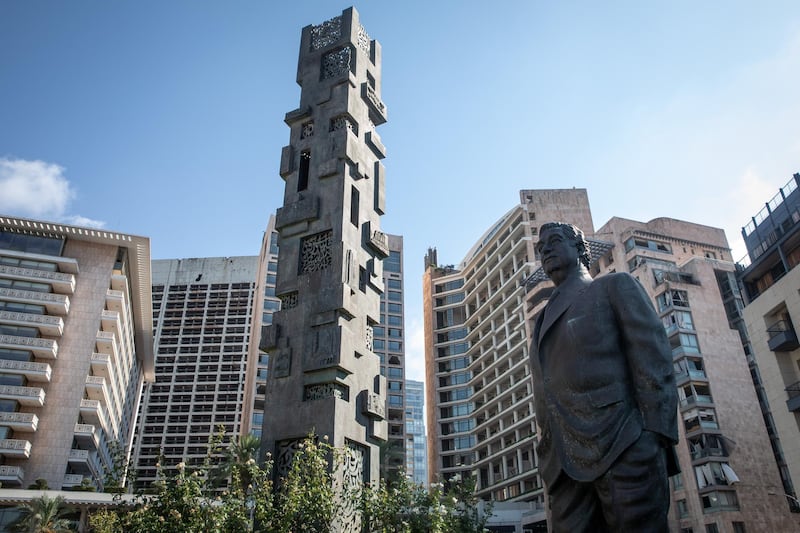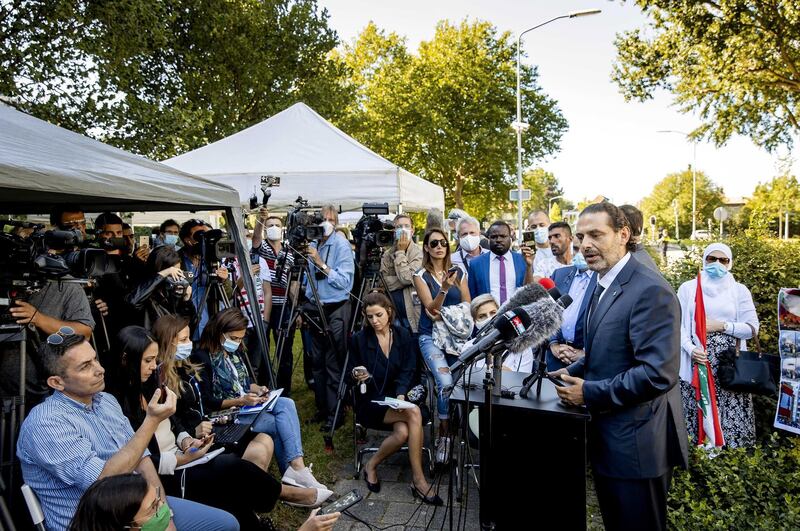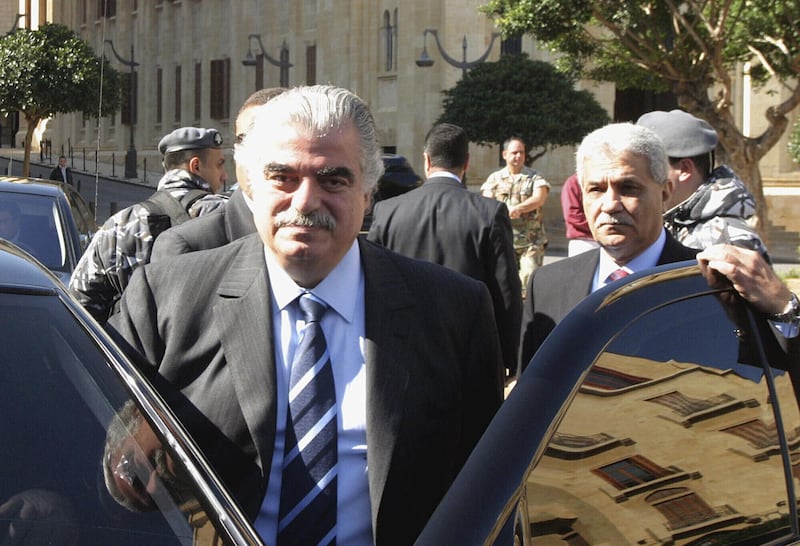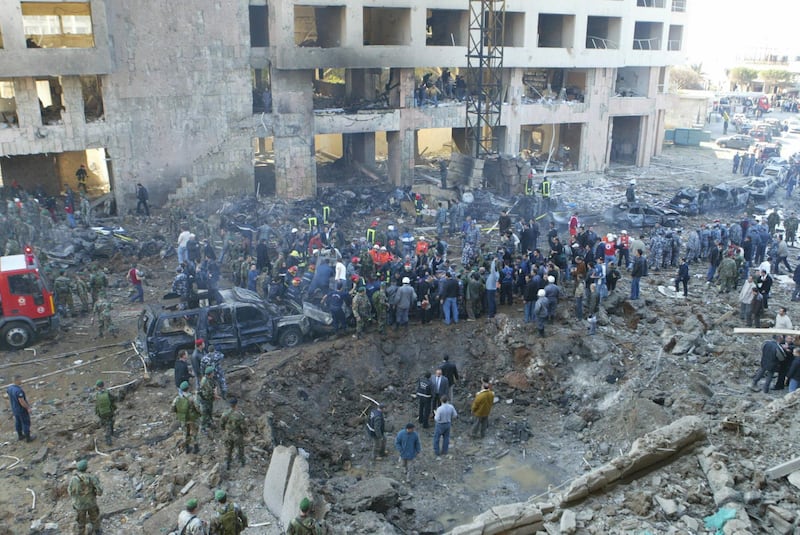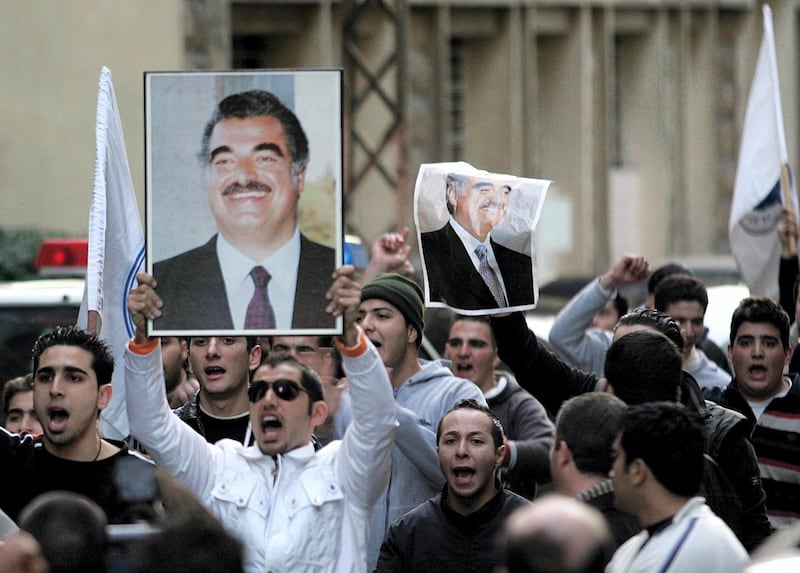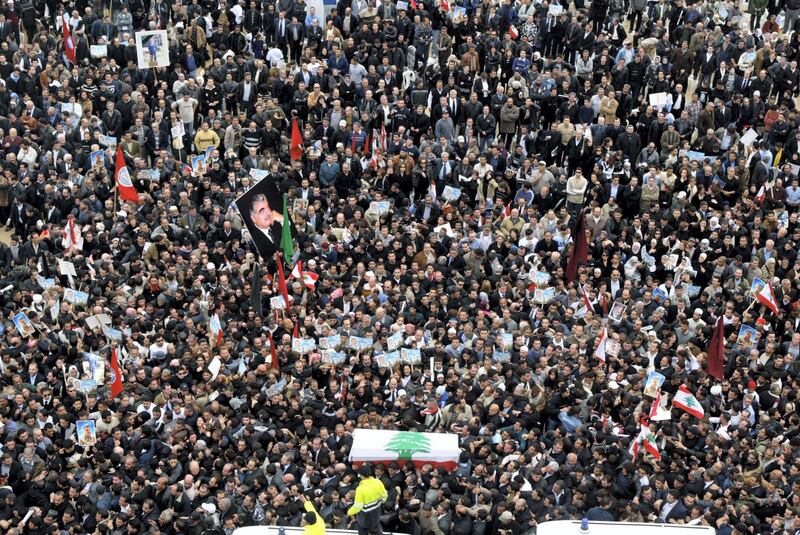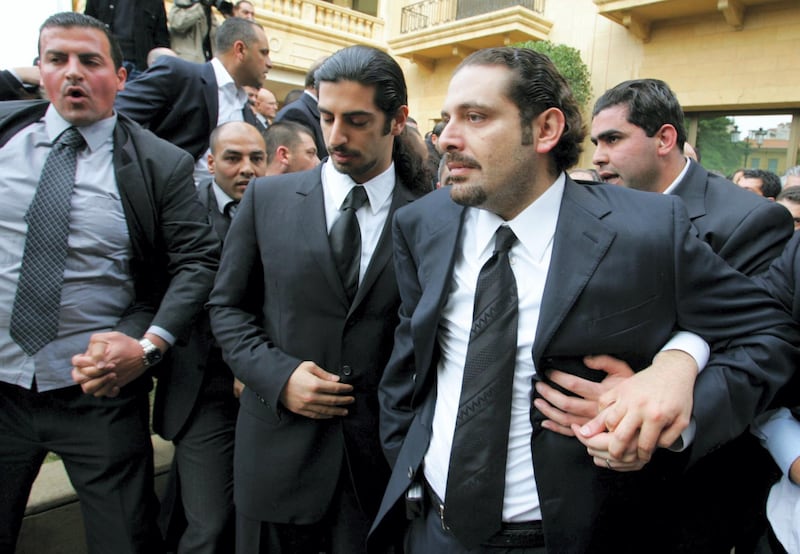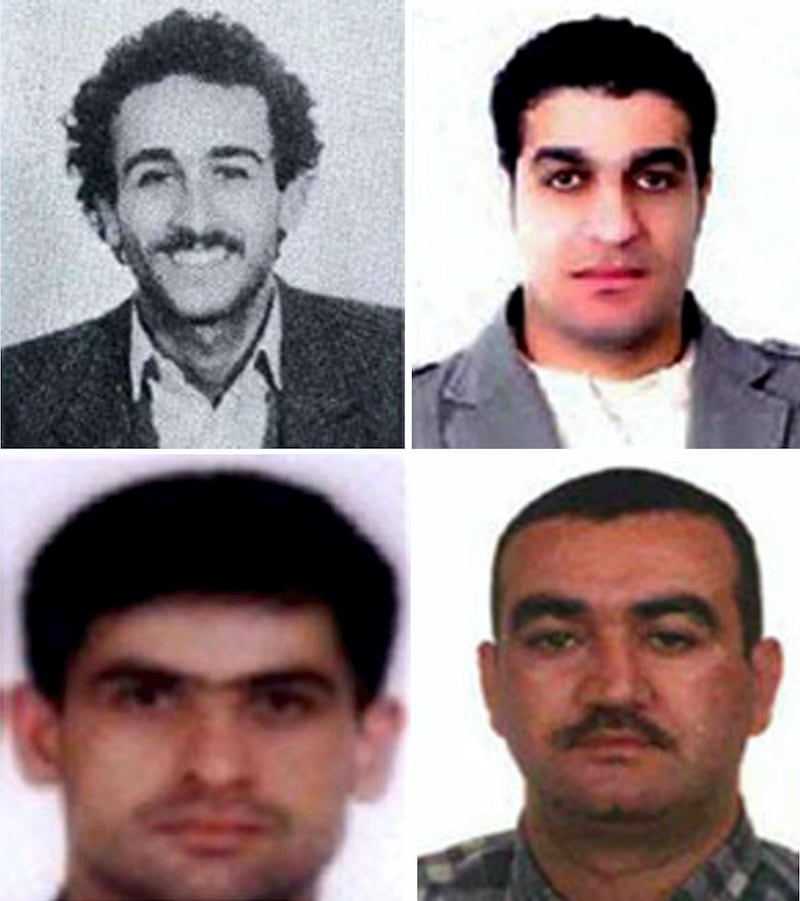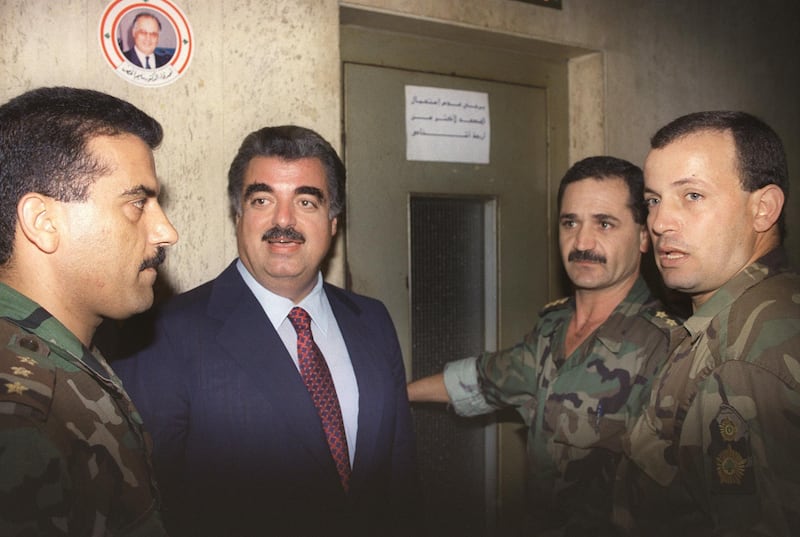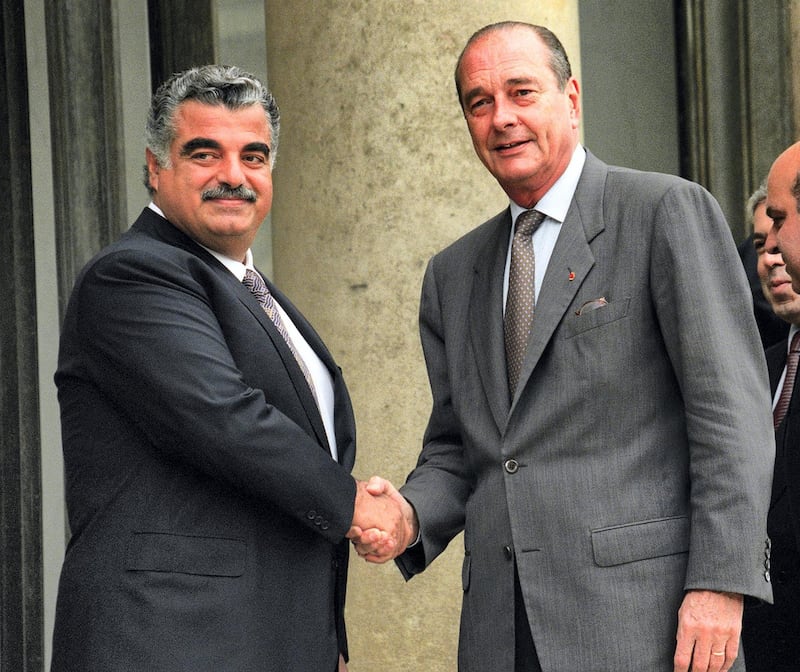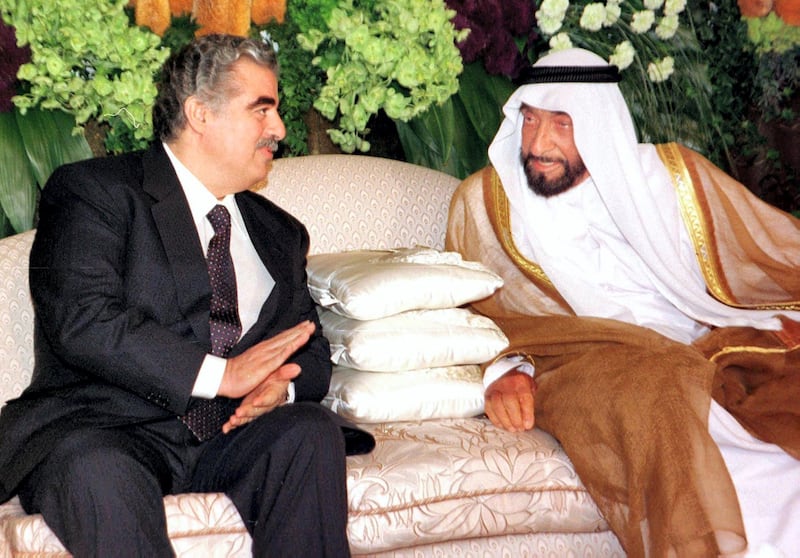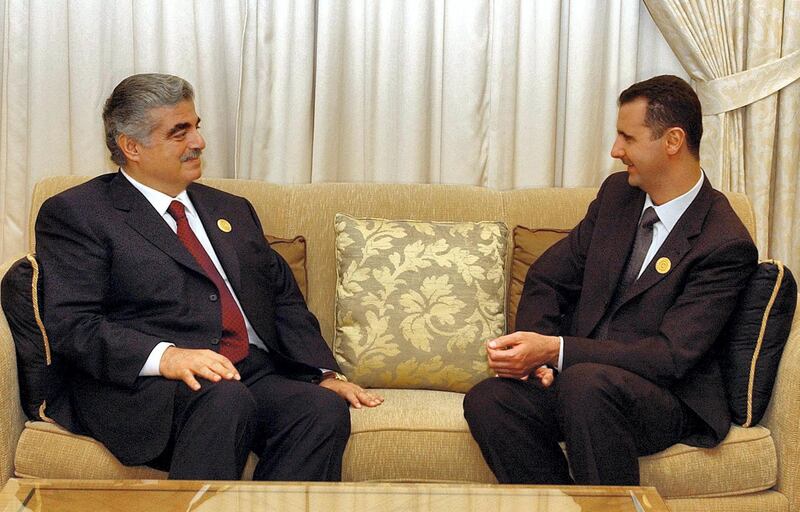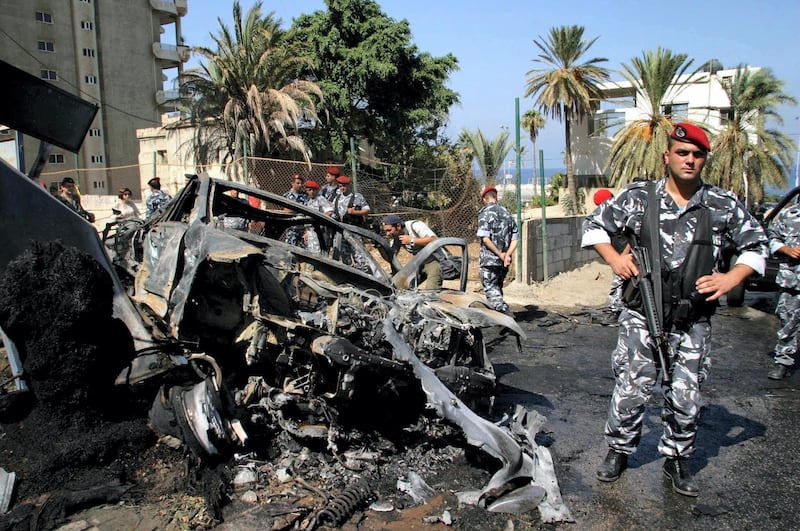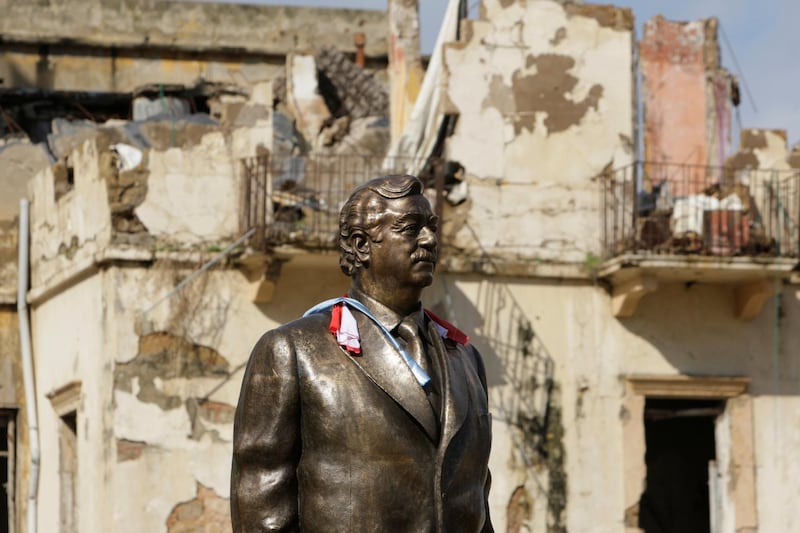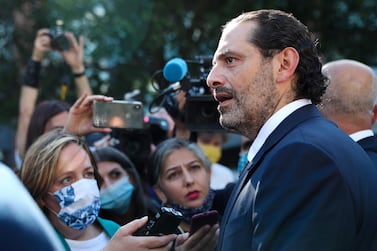The streets of Beirut were deserted on Tuesday afternoon as the Lebanese stayed home in fear of violence while judges in the Netherlands read out the verdict on the assassination of former prime minister Rafik Hariri, 15 years after his killing.
“We are afraid that violent things could happen,” said Andrea, 27, a bank employee who rushed to drive home in the normally busy square of Sassine.
“Let’s pray for Lebanon."
Maya, 31, was one of the only people spotted on the usually bustling Corniche, a few hundred metres away from where Hariri died on February 14, 2005, in a suicide bomb attack that killed 21 other people and injured 220.
“I was watching the [live transmission] of the tribunal and I needed a mental break,” Maya said.
“As we stand here, someone from either Hezbollah or his Future Movement could start shooting and kill us by mistake.
“People are traumatised now."
Much of the trauma came from the August 4 explosion of 2,750 tonnes of ammonium nitrate in Beirut port, which devastated the city and killed at least 177 people.
Lebanese officials have said that the explosion was probably caused by unsafe storage of the chemicals for seven years.
“But if I die, I die," Maya said. "I can’t sit at home all the time.”
In the early afternoon, shortly after the judge began reading his verdict, downtown Beirut was deserted, except for policemen and journalists.
They were waiting for a delegation from the Future Movement, the political party of Hariri's son Saad, to pay its respects at the former leader's tomb later in the day.
Several people declined to comment on the tribunal’s verdict.
“What’s the point?" a woman sitting on a bench said. "Hariri died 15 years ago. We all know who did it."
Maha Yahya, director of the Carnegie Middle East Centre, said: “Everybody is worried.
"You don’t want to be caught in the middle of a clash between Hezbollah and the Future movement.
"We have been living through so much for the last 15 years since Hariri’s assassination.
"In many ways, we are still experiencing the ripple effects of that instability.”
Ms Yahya was referring to, among other things, the wave of political assassinations after Hariri’s death.
A 'time of mourning and listening to justice'
But politicians were keen to stress that they expected no major clashes.
“We do not believe in making disturbances today,” said Nasser Hammoud, general co-ordinator for the Future Movement in Saida and South Lebanon.
"This is a time of mourning and listening to justice."
The party did not organise political rallies or social gatherings to mark the day.
Despite the acquittal of three of four of the accused, Mr Hammoud said he was happy with the verdict.
“This proves the transparency of the tribunal," he said.
"It said there were no immediate links with Hezbollah but we all know that all four are Hezbollah members.
"You're faced with two interpretations: either Hezbollah is involved and they are hiding it; or [Hezbollah leader] Hassan Nasrallah does not control every person in his party.
“This is the first time in the history of Lebanon that we have an international tribunal that tried to solve such a huge assassination. This should deter future criminal activity."
The Lebanese people were less praising on social media.
As judges were still reading the verdict, the Lebanese started sharing dark jokes on Twitter to express their disappointment.
“It’s almost like the international tribunal is telling us that Hariri died because of the coronavirus,” one posted.
